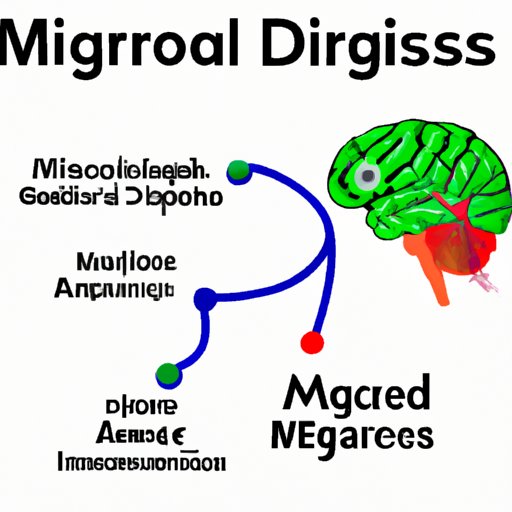
I. Introduction
Motor Neuron Disease (MND), also known as Amyotrophic Lateral Sclerosis (ALS) or Lou Gehrig’s disease, is a degenerative neurological condition that affects the nerves in the brain and spinal cord. It primarily affects the ability to move voluntary muscles, leading to difficulties in speaking, swallowing, and breathing. Although there is currently no cure for MND, treatments are available to manage symptoms and improve quality of life. In this article, we will explore the causes, symptoms, management, and support available for those affected by MND.
II. Understanding MND Disease: Causes, Symptoms, and Management
MND is a complex disease with no known cause, although genetics, environmental factors, and a combination of both may play a role. Research suggests that certain genes may make a person more susceptible to developing MND, but it is often a combination of genetic and environmental factors that trigger the disease. Common symptoms of MND include muscle weakness, twitching, and cramping, as well as difficulty with speech, swallowing, and breathing. While there is no cure for MND, treatments such as medication, physical therapy, and assistive devices can help manage symptoms and improve quality of life for those affected.
III. Living with MND: A Patient’s Story
Living with MND can be a difficult and isolating experience. To gain insight into the daily challenges faced by those living with the disease, we spoke with a patient who shared their personal experiences and reflections. Despite the many obstacles they face, this patient remains positive and optimistic in their outlook. They credit their support network of family, friends, and healthcare professionals as a key factor in helping them navigate life with MND.
IV. Breakthroughs in MND Research: The Latest Developments
Recent advancements in MND research have offered hope for improved treatments and potential cures. Trials of new drugs and therapies are ongoing, with promising results in slowing down the progression of the disease. Genetic research has also shed new light on the underlying causes of MND, with the hope that this knowledge can lead to more targeted treatments. While there is still much to be learned about MND, these developments offer hope for a brighter future for those affected by the disease.
V. MND Awareness Month: How You Can Help Support the Cause
MND Awareness Month is an annual event that aims to raise awareness and funds for research and support services for those affected by MND. There are many ways to get involved, such as participating in fundraising events, sharing your story, or volunteering with organizations that support the MND community. By increasing awareness and support, we can help move closer to finding a cure for MND.
VI. MND and Genes: Exploring the Link between Genetics and the Disease
Genetics plays a significant role in MND, with research indicating that certain genes may increase a person’s risk of developing the disease. As our understanding of the underlying genetics of MND improves, there is hope that new treatments and interventions can be developed. Ongoing research is uncovering new genetic links to MND, with the potential to unlock new insights into the disease and improve outcomes for those affected.
VII. Navigating MND Care: Tips for Caregivers and Loved Ones
For those caring for someone with MND, the challenge can be difficult and emotionally taxing. The role of caregivers is critical in providing support and security to those with MND. It is important for caregivers to care for their own health, as well as the mental and physical wellbeing of their loved one. There are many resources available to support caregivers, such as counseling services, support groups, and respite services. With the right support, caregivers can provide the best possible care for their loved ones with MND.
VIII. Conclusion
MND is a complex and challenging disease that affects thousands of people worldwide. While there is no cure for MND, significant advancements have been made in understanding, treating, and supporting those affected by the disease. By raising awareness, supporting research, and providing care to those affected, we can help improve outcomes and offer hope for a brighter future.




